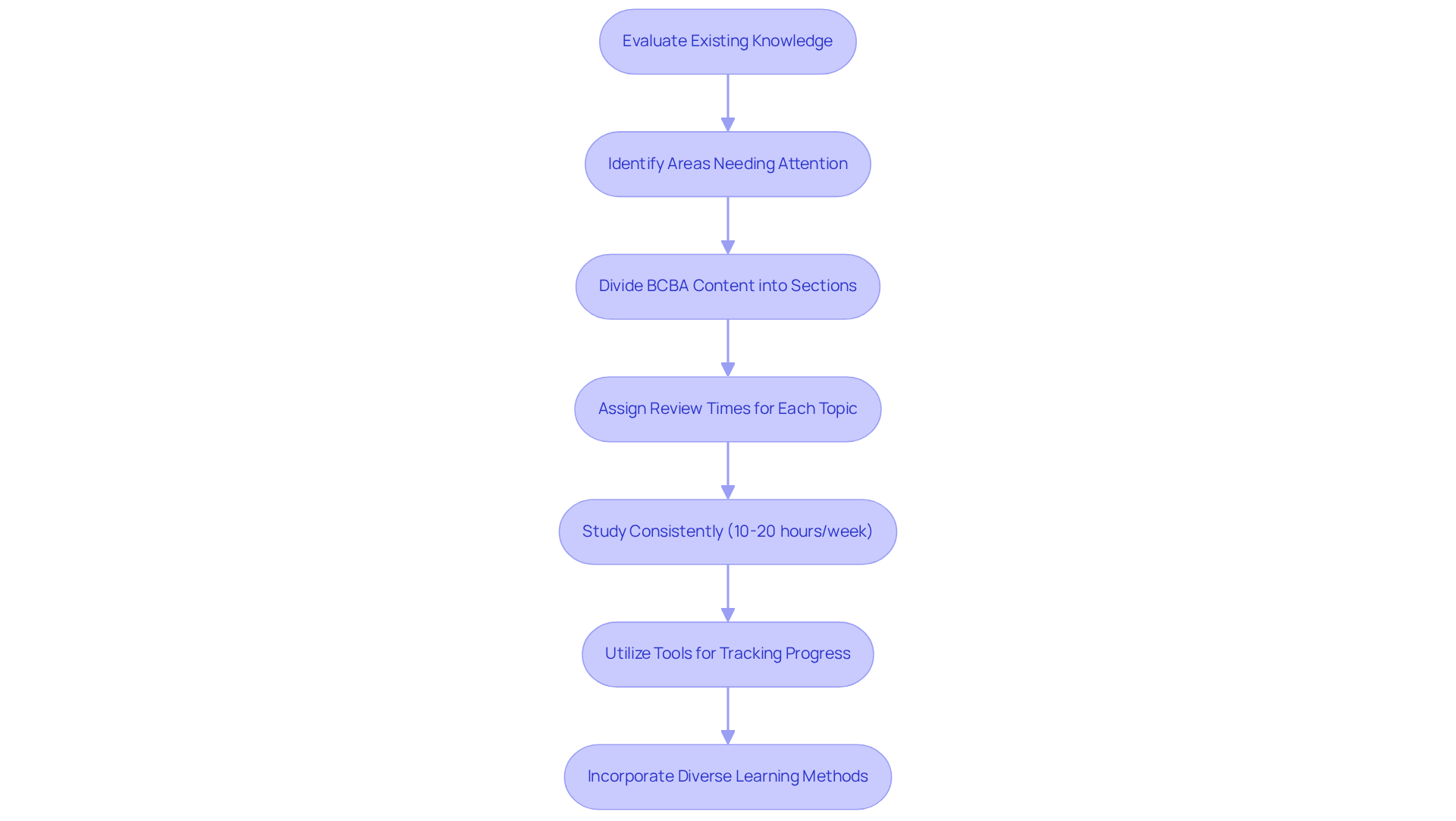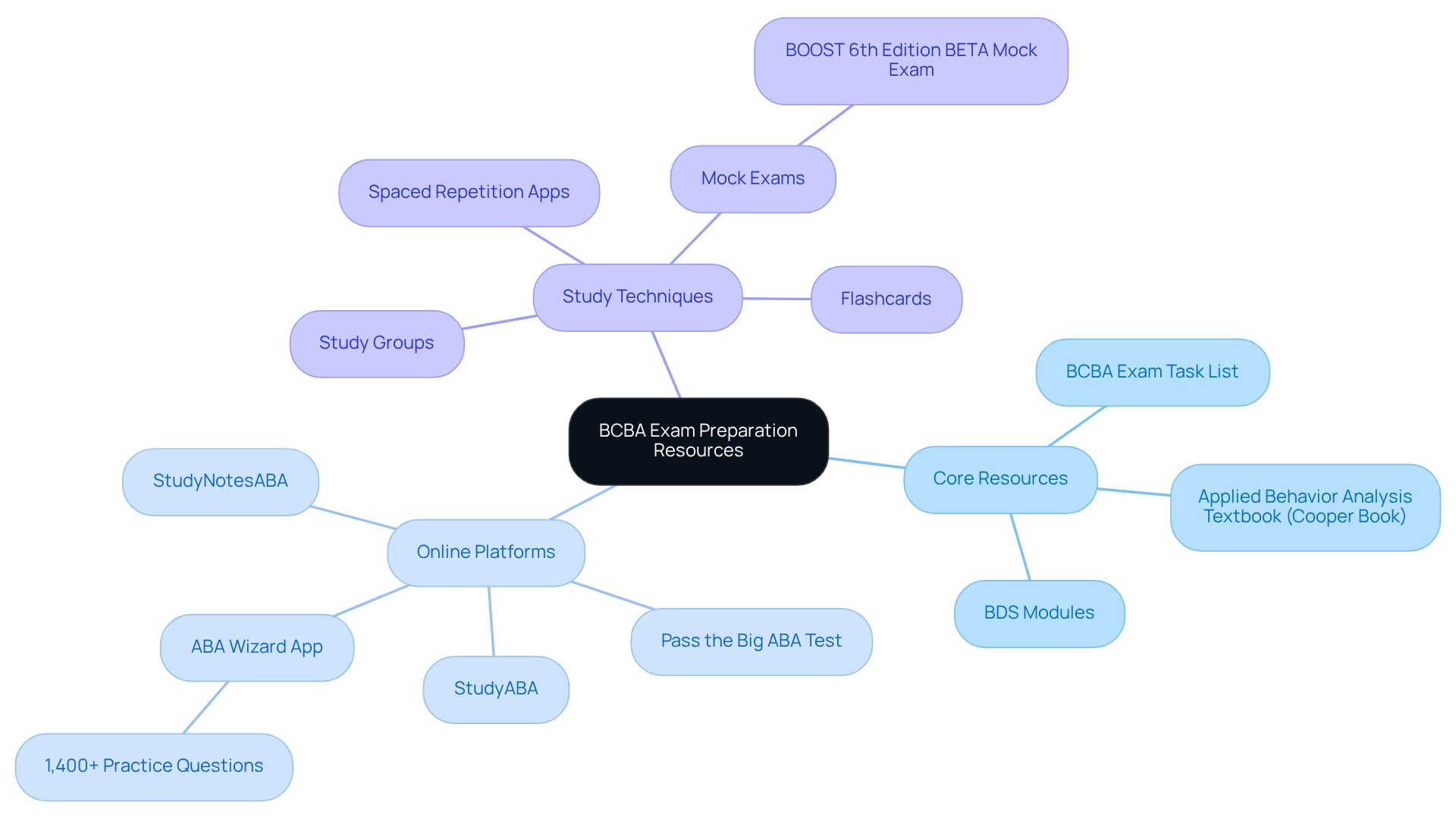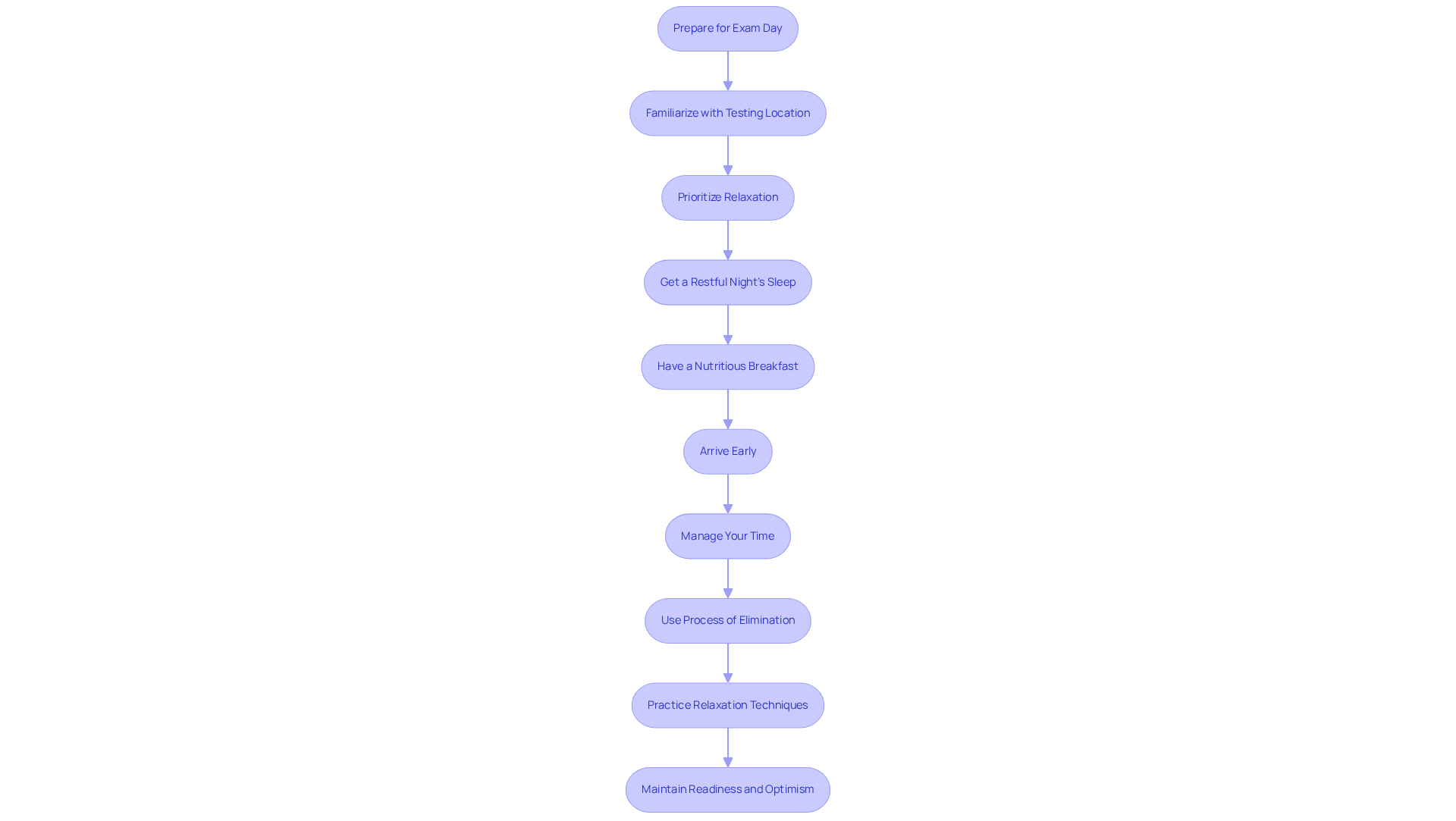June 21, 2025

Mastering the BCBA exam is crucial, especially given the growing demand for qualified professionals in the field. Understanding the exam's structure is the first essential step, followed by creating a comprehensive study plan.
Utilizing effective study materials and preparing strategically for exam day are equally vital. Thorough preparation, which includes tailored study strategies and practical experience, significantly enhances candidates' chances of passing on their first attempt.
Statistics reveal that well-prepared individuals enjoy higher success rates. Are you ready to elevate your exam preparation and join the ranks of successful BCBAs?
Mastering the BCBA exam is a pivotal step for aspiring Board Certified Behavior Analysts. Yet, many candidates find themselves overwhelmed by its complexity and the high stakes involved. With a daunting pass rate hovering around 65%, how can candidates effectively navigate their preparation and ensure success on their first attempt? This guide offers essential strategies and insights that can significantly enhance preparation, from understanding the exam structure to creating a tailored study plan.
The BCBA exam represents a crucial milestone for aspiring Board Certified Behavior Analysts, featuring 175 scored questions alongside 10 unscored pilot questions. This assessment evaluates applicants across vital content domains, including:
Understanding the framework of the assessment is essential, as it allows individuals to tailor their study efforts effectively. Notably, the assessment evaluates not only theoretical knowledge but also the practical application of in real-world scenarios, which is vital for maintaining high standards in ABA therapy.
Familiarity with the test structure, including the variety of questions and time constraints, significantly boosts candidates' confidence and preparedness on test day. Statistics reveal that individuals from accredited programs achieve higher pass rates, with an impressive 67% pass rate for first-time test-takers from these programs, underscoring the importance of quality education in this field.
Furthermore, case analyses demonstrate that successful candidates often attribute their achievements to structured learning schedules and effective planning strategies, highlighting the necessity of a comprehensive approach to mastering the BCBA exam. As Fayge Orzel noted, 'Although difficult, a considerable percentage of candidates show that success on the initial try is attainable with sufficient groundwork, efficient learning techniques, and a concentrated mindset.'
Additionally, completing supervised fieldwork hours is a fundamental requirement for aspiring BCBAs, reinforcing the significance of practical experience in preparation.
To create a thorough learning plan, begin by evaluating your existing knowledge and pinpointing areas that require additional attention. Consider the demand for BCBAs: with a pass rate for first-time candidates hovering around 65%, effective preparation is crucial.
Ask yourself: how can learning groups provide encouragement and assistance, facilitating cooperative education and conversation about difficult concepts? Regularly review your plan and adjust it based on your progress and comfort level with the material.
Keep in mind that the typical pass rate for first-time candidates taking the BCBA exam is approximately 65%, varying between 60-70%, which underscores the significance of comprehensive readiness and efficient learning techniques. Furthermore, prioritize self-care and stress management during your planning process to maintain a balanced approach.

Effective resources are crucial for comprehensive preparation for . Begin with the BCBA exam Task List, which outlines the critical areas of knowledge necessary for success. This list is regularly updated, with the latest revisions in 2025 reflecting current best practices in the field. Thorough resource materials that include practice questions and detailed explanations for the BCBA exam are invaluable. Online platforms like StudyABA and Pass the Big ABA Test offer an abundance of resources, including practice assessments and instructional videos that cater to various learning styles. The ABA Wizard application, featuring more than 1,400 practice questions for the BCBA exam, is another outstanding tool for candidates.
Joining study groups can foster a supportive environment, enhancing motivation and accountability among peers. Flashcards are excellent for quick reviews, while apps that utilize spaced repetition techniques can significantly improve memory retention. It is essential to guarantee that all selected materials are up-to-date and in accordance with the most recent content outline, as this alignment directly affects preparation effectiveness. As pointed out by specialists, using top-notch materials can significantly enhance the chances of passing the test on the first try, with data showing that roughly 65% of individuals succeed when properly prepared. Moreover, the Hopebridge Fellowship Program provides hands-on application experience, further improving candidates' preparedness for the assessment.

As the demand for (BCBAs) is projected to increase by 25% by 2026, applying effective strategies for the BCBA exam preparation is essential for peak performance.
With the increasing demand for BCBAs, supporting candidates in their preparation for the BCBA exam is more important than ever.

Mastering the BCBA exam is not merely about passing a test; it is a pivotal step toward becoming a qualified Behavior Analyst. This journey demands a strategic approach that encompasses:
Each of these elements plays a crucial role in ensuring candidates are ready not only to take the exam but also to excel in their future careers.
Structured preparation is essential. Developing a tailored study plan that breaks down content into manageable sections and incorporates various learning methods is key. Effective study materials and resources, such as updated task lists and practice questions, reinforce knowledge and enhance retention. Furthermore, practical experience and self-care significantly contribute to overall performance and well-being during this demanding process.
Ultimately, the path to success on the BCBA exam is paved with diligent preparation and a proactive mindset. As the demand for BCBAs continues to rise, aspiring candidates are encouraged to leverage these strategies and insights to navigate their preparation effectively. By committing to a well-structured study plan and maintaining a positive attitude, individuals can approach the exam with confidence, ready to make a meaningful impact in the field of behavior analysis.
What is the structure of the BCBA exam?
The BCBA exam consists of 175 scored questions and 10 unscored pilot questions.
What content domains does the BCBA exam evaluate?
The exam evaluates applicants on behavior evaluation, intervention tactics, and ethical considerations.
Why is understanding the exam framework important for candidates?
Understanding the exam framework allows candidates to tailor their study efforts effectively and prepares them for the practical application of behavior analysis principles.
How does familiarity with the test structure benefit candidates?
Familiarity with the test structure, including the variety of questions and time constraints, boosts candidates' confidence and preparedness on test day.
What is the pass rate for first-time test-takers from accredited programs?
First-time test-takers from accredited programs have an impressive pass rate of 67%.
What factors contribute to the success of candidates on the BCBA exam?
Successful candidates often attribute their achievements to structured learning schedules, effective planning strategies, and comprehensive preparation.
What role does supervised fieldwork play in BCBA exam preparation?
Completing supervised fieldwork hours is a fundamental requirement, emphasizing the importance of practical experience in preparation for the exam.
Our expert recruitment strategies and AI-driven sourcing ensure that you receive top-notch candidates quickly, without compromising on quality. Whether you’re looking for BCBAs, Clinical Directors, or RBTs, we’ve got you covered.